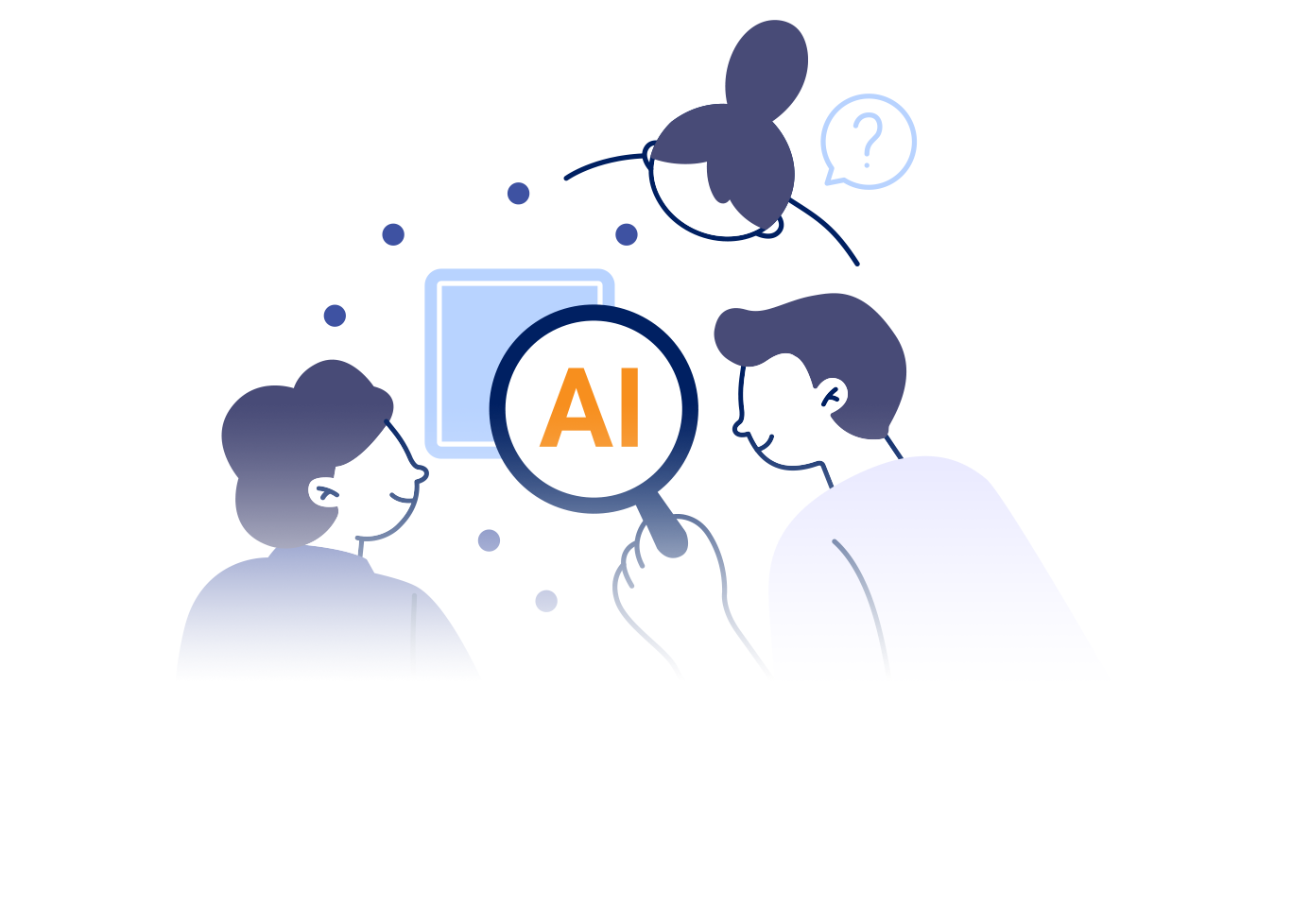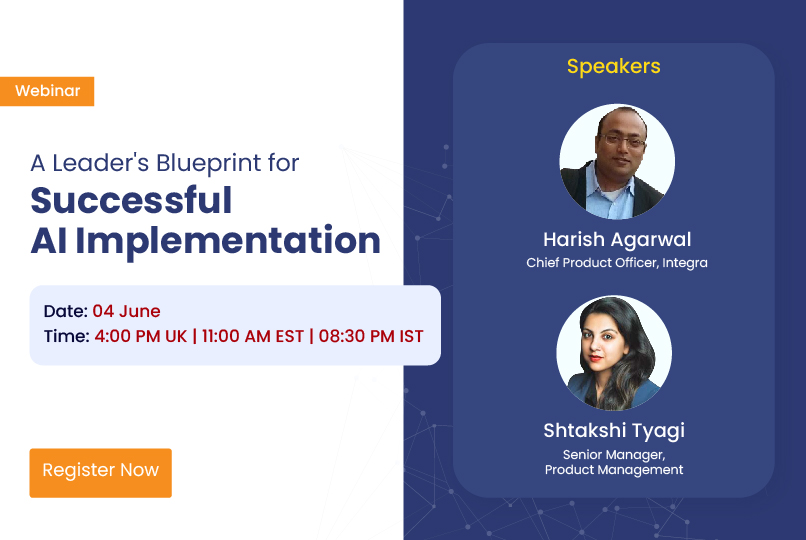Author: Nikhil. Mahamuni
Implementing AI Agents: Key Considerations and Strategies
AI is transforming the business world, with AI agents at the forefront of this revolution. These digital assistants are making significant impacts across various sectors.
What Do AI Agents Do?
AI agents are sophisticated programs that can think and learn, handling tasks that typically require human involvement. They excel in areas that require repetitive tasks such as customer service, sales and supply chain management.
These agents function like a tireless team that operates without errors (when rightly set-up) and processes vast amounts of data rapidly. They allow human staff to concentrate on strategic tasks. For example:
- In customer service, AI agents interact with clients, providing swift and accurate responses.
- For sales, they identify and qualify leads.
- In supply chain management, they forecast demand, monitor inventory and manage logistics.
They serve as versatile tools across many business functions.
Why Implement AI Agents?
AI agents offer several advantages:
- Efficiency: They accelerate processes and conserve resources
- Accuracy: They reduce errors compared to human operators
- Scalability: They can manage multiple tasks simultaneously, supporting business growth
- Insight: They analyze data to extract strategic information
- Customer Satisfaction: They enhance customer experience through quick, personalized service
However, implementing AI agents presents challenges. It requires evaluating business readiness, establishing clear objectives, preparing data and selecting an appropriate platform. Additionally, considerations for data privacy, security and ethical issues are essential.
Getting Ready for AI: Key Considerations
Before implementing AI agents into your business, several factors need evaluation. It’s not just about adopting cutting-edge technology; it’s about ensuring team alignment and defining clear goals.
Is Your Business Ready?
Assessing your business’s AI readiness involves examining how AI aligns with your overall strategy, your technological infrastructure and team capabilities.
Firstly, evaluate and verify AI integration supports your broader business objectives. Evaluate your current technology. This includes hardware/cloud, software and network systems capable of supporting AI.
And lastly consider your team’s skills. Do they possess AI expertise or are they willing to learn? Employee buy-in and readiness to adopt new technology are crucial.
Use this checklist to gauge your readiness:
| Criteria | Description |
| Business Strategy | AI alignment with overall objectives |
| Tech Setup | Appropriate hardware, software and network infrastructure |
| Team Skills | Employee AI skills or willingness to learn |
Setting Clear Goals
Once you’ve confirmed readiness, establish clear objectives. Define what you aim to achieve with AI, whether it’s improving customer service, streamlining operations or gaining a competitive edge. Clear goals will guide your AI implementation process.
Consider these questions:
- What issues will AI address for our business?
- How will AI add value to our operations?
- What are our expected outcomes from AI implementation?
- How will we measure success?
Your goals should adhere to the SMART criteria: Specific, Measurable, Achievable, Relevant and Time-bound. This approach enables progress tracking and ensures you’re on the right path.
By assessing your business readiness and setting clear goals, you’ll be well-prepared for successful AI implementation. These steps help avoid potential obstacles and ensure you’re fully equipped to utilize AI’s benefits.
Strategies for Successful Implementation
Implementing AI agents in your business requires careful planning and execution. Here’s a practical guide covering data preparation, platform selection and AI agent monitoring.
Data Preparation and Integration
The foundation of effective AI agents is high-quality data. Begin by assessing your existing data, cleaning it and formatting it for AI consumption.
Data integration involves combining data from various sources into a unified format. This process may require resolving data inconsistencies and selecting appropriate tools for data management. Mastering this step provides your AI agent with a solid operational base.
Choosing the Right AI Agent Platform
Selecting an appropriate AI agent platform is crucial. Consider each platform’s capabilities, compatibility with your current systems, scalability potential and available support.
Conduct thorough research and test multiple platforms before making a decision. This approach ensures you find a platform that meets your needs and optimizes your AI agent’s performance.

Training and Monitoring AI Agents
After preparing your data and selecting a platform, build and train your AI agent. Feed it data and allow it to learn. This process may require multiple iterations to achieve optimal results.
Once your AI agent is operational, ongoing monitoring is essential. Track its performance, address any issues and refine its algorithms as needed. Regular training and monitoring maintain your AI agent’s effectiveness and value. For more information, consult our article on AI agent deployment.
Adhering to these strategies sets the stage for successful AI agent implementation. Remember, this is an ongoing process requiring continuous attention to deliver value and meet your objectives.
Measuring Success
Implementing AI agents is just the initial step. Evaluating their performance and assessing their business value is crucial for ongoing success.
Key Metrics for AI Agent Success
Tracking appropriate metrics is essential to gauge AI agent effectiveness. Consider these important indicators:
| KPI | Measurement Focus |
| Accuracy | Correctness of AI responses |
| Response Time | Processing and reply speed |
| User Satisfaction | User feedback and ratings |
| Cost Savings | Financial benefits from automation |
| Revenue | Impact on bottom-line from AI-driven actions |
Align these KPIs with your business objectives to ensure your AI agents meet your goals.
Continuous Improvement and Optimization
AI agent implementation requires ongoing attention and refinement. Regular KPI assessments reveal areas for improvement.
Update your AI agents with new data consistently to maintain their relevance. This practice helps them adapt to changes in your business environment and user behavior.
Stay informed about emerging AI technologies that could enhance your agents’ capabilities. Keeping pace with AI and machine learning advancements ensures your agents remain competitive.
Conduct periodic audits of your AI agents to identify and address any ethical or privacy concerns. Maintaining ethical standards and protecting user data builds trust and encourages AI solution adoption.
Lastly, actively seek user feedback. User insights can highlight areas for AI improvement. Ultimately, the goal is to streamline business operations, enhance user experiences and drive growth. Therefore, continue refining and optimizing your AI agents as part of your ongoing AI agent development process.


